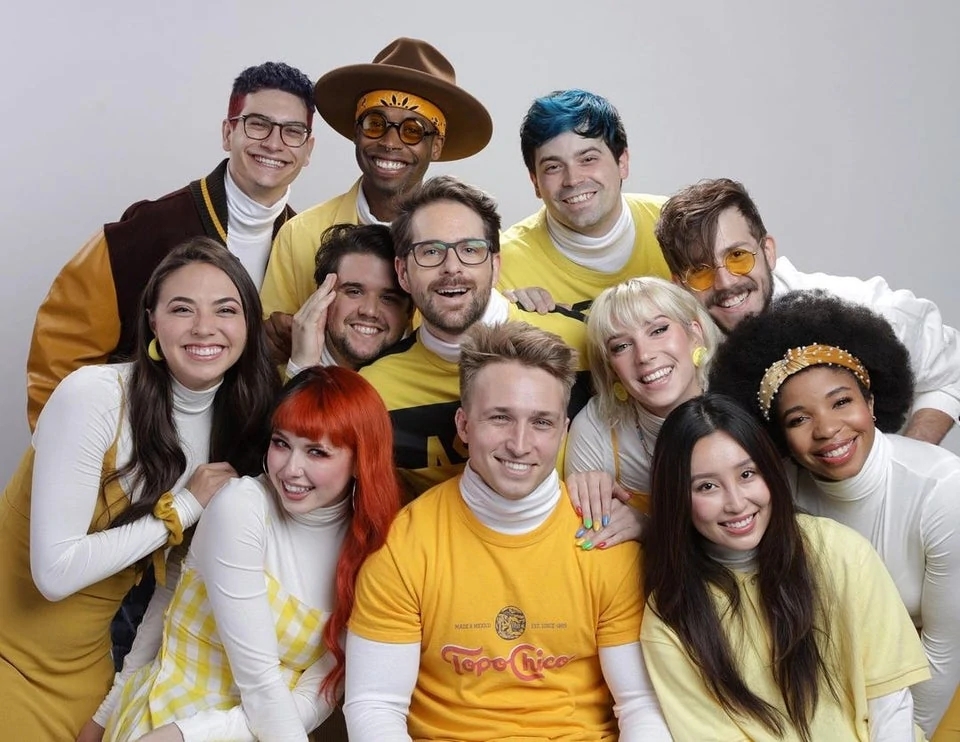I started writing this about two days after the reddit stories video featuring Samantha Brier was uploaded.
This is the second time a Smosh reddit video receives so many backlashes; in this case, it is because of Brier’s toxic opinions and how Shayne and Angela were too cowardly to counter her. But, unlike in the previous case, the channel’s admin had to wrote down a response….. and that response only pissed some fans off even more.
One of our FAVORITE parts of reading Reddit stories is sparking fun and light hearted conversation with y’all. We love the passion our community brings and while roasting us is encouraged, sometimes comments get taken too far. It seems we’ve forgotten what is okay in our little corner of the internet, so let’s review!
– Friendly reminder that this is a comedy channel, we are in no way qualified to seriously advise or analyze any of the stories we read. we love hanging out with you all every Saturday to discuss our thoughts, but please remember that we’re not offering any advice.
– It’s 100% okay to not agree with our takes or even like our jokes. We encourage thoughtful discussion and valid feedback! What’s not okay? To verbally attack any cast members or guests featured, just because your opinion doesn’t match theirs. There’s enough hate in the world, let’s not bring it here.
– In our most “Principal’s Office” voice: Attacking any of our guests or seeking out their personal socials with the intent of bullying is unacceptable and will result in a permanent block from our channels. Don’t make us do that because it’s not fun!
Let’s remember to be kind, respectful and keep our Smosh space full of the joyful absurdity that we all love! That’s all folks, see you next upload!
Yes, admittedly, internet comment sections can be a cesspool of bullying. But, if you look at the comments about Brier, most of them are not bullying. They are valid criticisms about her and, to a lesser extent, Shayne and Angela. Instead of acknowledging them, the admin chose to dismiss the commenters as bullies.
I don’t know if the admin cherry-picked the comments and pretend the bullies dominate the comment section OR they are one of those people who think criticisms count as bullying. I don’t know which is worse.
The admin also made comments about Smosh being a comedy channel, how its reddit videos always spark fun and light-hearted conversations and how the backlash was just about fans offended by jokes. Those comments rub me the wrong way the most.
First thing first, Smosh has a long history of dark and “inappropriate” jokes. Even after the many turbulent changes it has gone through, Smosh cast members still make them to this day.
Mind you, one of Ian’s most infamous jokes was the time when he jokingly wished the air marshal shoot Kimmy’s grandma for opening a can of durian inside an airplane. In one of the videos where Courtney read her diaries, she showed the cottage cheese stain on one of her books…. and Noah joked the cheese was her crush’s cum stain. Tommy’s Try Not To Laugh jokes include one about a quadriplegic wife and another about “diarrhea Anne Frank”. Shayne’s drowning death as a baby is a recurring joke, so was Keith’s cancer. There are enough 9/11 jokes for a fan compilation video. The funeral roast sessions can get personal at times. Even some fans describe Smosh cast members as walking HR violations.
Not only those jokes barely got any backlashes, if at all, some of them even become fan favourites. It is obvious our hatred of the reddit video has nothing to do with us getting offended by the so-called jokes.
The world of comedy (the American one, specifically) has George Carlin and The Daily Show veterans like Jon Stewart, Stephen Colbert, Hasan Minhaj, Samantha Bee (yes, I know she’s Canadian), Trevor Noah (yes, he’s South African) Jordan Klepper and Roy Wood Jr. They are not mere jokers, they are ones who use humour to enunciate their genuine thoughts and feelings; in fact, they are famous because of that exact reason, not despite of. With such knowledge in mind, it is hard to not perceive “it is just a joke” as an expression of one’s ignorance.
The reddit videos involve a wide range of stories. Some of them are indeed hilarious and goofy. But, there’s the keyword: SOME.
The rest of the stories are much serious, some of them involve straight-up abusive behaviours and trauma. Due to the seriousness, it is actually normal for Shayne and his co-hosts to discuss entire stories without cracking a single joke.
And the comment sections are even more serious, even when the videos have lots of jokes; the commenters frequently express their frustration and anger about the stories and a few of them are being reminded of their own personal traumas.
So no, Smosh’s reddit videos are not entirely fun and light-hearted.
Yes, I do agree we shouldn’t obligate anyone to be the moral police. But, that doesn’t mean we shouldn’t have basic decency. The backlash is not about us being moralistic, it is about us witnessing something which doesn’t satisfy our moral bare minimum.
To recap the admin’s disappointing response:
Despite managing a comedy Youtube channel, they have a very shallow idea of what comedy is. They think comedy is nothing more than just fun and light-hearted entertainment, despite the many famous examples to the contrary.
Despite managing one of the four active Smosh channels, the admin is oblivious to what kind of content Smosh provides and how fans react to it.
And, to top it all, they think having basic moral standard makes us too moralistic; they think we should give comedians an exemption.
Not only the admin is professionally inept, they are also morally feckless.
Before I end this blogpost, let’s talk about Shayne Topp as well.
The reddit series greatly improved his image. Previously, he was known for being funny (yes, some people may not like his humour), genuinely likeable (when he is not performing characters) and being physically attractive (yes, you still can find thirsty comments about him, albeit not as much).
Thanks to series, people also ended up seeing him as an emotionally insightful person. He refuses to invalidate other people’s experiences, even though he cannot relate to them, and he tries to understand why people behave the way they do, without excusing their horrible behaviours. He has also expressed righteous anger from time to time, something which we barely see in other videos.
And, because of those reasons, we are extremely disappointed by his performance here. We known damn well he can be better. While he has acknowledged his non-confrontational inclination, I never expected him to be a such pushover.
As stated before, this is not the first poorly-received Smosh reddit video; the one with Rachel and Ify was also hated, mostly because of the former (even though the latter was only marginally better).
Shayne’s silence and refusal to pushback was disappointing. But, in this case, it is far worse because he verbally supported Brier’s words.
The thing that improves his reputation is also the one that worsens it.
While he certainly doesn’t need to be “cancelled”, I do think a rotation of hosts is needed. As much as I appreciate his insightfulness, he is not special.
Damien and Arasha’s can easily rival his. Assuming they don’t share his unassertiveness (and they are willing to do the job), they would make great hosts for the series.
.
.
.
.
.
Donate to this deadbeat, preachy blogger on Patreon.








